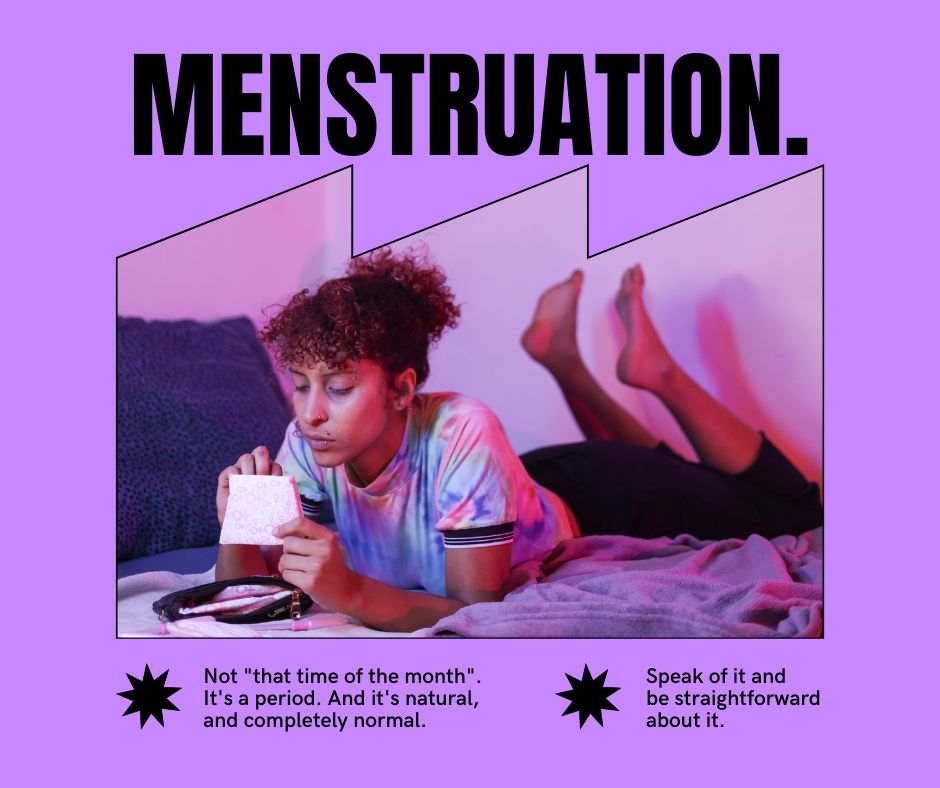
Menstruation Misconceptions: What You Need to Know
Menstruation is a natural and essential biological function experienced by billions of people around the world. Yet despite its universality, it remains surrounded by stigma, secrecy, and misinformation. These misconceptions not only foster shame but can also negatively impact menstrual health and overall well-being.
Understanding the Menstrual Cycle
The menstrual cycle isn’t just about the days of bleeding—it’s a complex, hormonal process that typically spans 21 to 35 days. It consists of four main phases:
- Menstruation (Days 1–5): Shedding of the uterine lining when pregnancy doesn’t occur.
- Follicular Phase (Days 1–13): The pituitary gland signals ovaries to produce follicles.
- Ovulation (Around Day 14): A mature egg is released from the ovary.
- Luteal Phase (Days 15–28): The uterus prepares for a possible pregnancy.
Due to individual differences, there may be variations in length and symptoms. Understanding this helps dismantle the idea that menstruation is uniform for all.
Common Menstruation Myths and Facts
Myth 1: Menstruation is Dirty or Impure
Fact: Menstruation is a healthy and natural biological function.
This myth stems from outdated cultural taboos that label menstruation as unclean. Such beliefs have led to restrictions on menstruating individuals. From being barred from temples to being excluded from kitchens. These stigmas perpetuate shame and misinformation, keeping menstrual education in the shadows.
Myth 2: You Can’t Get Pregnant During Your Period
Fact: Pregnancy during menstruation is unlikely, but possible.
While rare, conception can occur if ovulation happens shortly after menstruation and sperm remains viable in the reproductive tract (up to 5 days). It’s important to understand that fertility is not completely absent during a period.
Myth 3: You Shouldn’t Exercise During Menstruation
Fact: Exercise can ease menstrual symptoms.
Light to moderate physical activity, like yoga, walking, or swimming, can alleviate cramps, boost mood, and reduce fatigue. Avoiding exercise due to menstruation is unnecessary unless discomfort is severe.
Myth 4: Periods Should Be Painful
Fact: Some discomfort is normal, but extreme pain isn’t.
Cramps, fatigue, and mood changes are common, but severe pain may signal underlying issues such as endometriosis or fibroids. If pain interferes with daily life, medical evaluation is essential.
Myth 5: Menstrual Cycles Always Last 28 Days
Fact: Menstrual cycle length varies widely.
The “standard” 28-day cycle is just an average. Many people have shorter or longer cycles due to factors like stress, hormonal imbalances, and medical conditions. Irregular cycles are common, especially during adolescence and perimenopause.
Cultural and Societal Impacts
Menstruation myths have tangible consequences, especially in cultures where periods are taboo. In many parts of the world, girls miss school during their periods, face isolation, or lack access to sanitary products. Stigma can lead to mental health issues and hinder progress toward gender equality.
Menstrual health should be seen as a fundamental human right, not a luxury or shameful topic.
Promoting Menstrual Health Education
Education is the key to dispelling menstruation myths. Comprehensive, inclusive menstrual health education, beginning at a young age—fosters understanding and confidence. Open discussions help normalize periods and empower individuals to take charge of their health.
Parents, schools, workplaces, and communities must work together to create an environment where menstruation is talked about openly and without shame.
Conclusion
Misconceptions about menstruation have persisted for generations, affecting millions worldwide. By exposing these myths and spreading factual, science-backed information, we can promote dignity, health, and equity for all menstruating individuals.
It’s time to shift the narrative. Periods are not shameful, mysterious, or dirty. They’re natural, manageable, and deserving of open conversation.
FAQs
Q1: Is it safe to swim during menstruation?
Yes. Using products like tampons or menstrual cups makes swimming during your period completely safe and hygienic.
Q2: Can diet affect menstrual cycles?
Absolutely. Deficiencies in nutrients like iron, vitamin D, and magnesium, or drastic changes in diet, can impact menstrual regularity.
Q3: Are irregular periods a cause for concern?
Occasional irregularities are usually normal, but consistently irregular cycles may signal health issues and should be checked by a doctor.
All Categories
Recent Posts
Why SDG 4 Cannot Be Achieved Without Ending Period Poverty
Tags
Give them a helping hand
Every donation fuels our mission to combat period poverty. Your generosity brings us closer to menstrual equity.
+234-909-482-1642
inquiries@blossomflow.org




